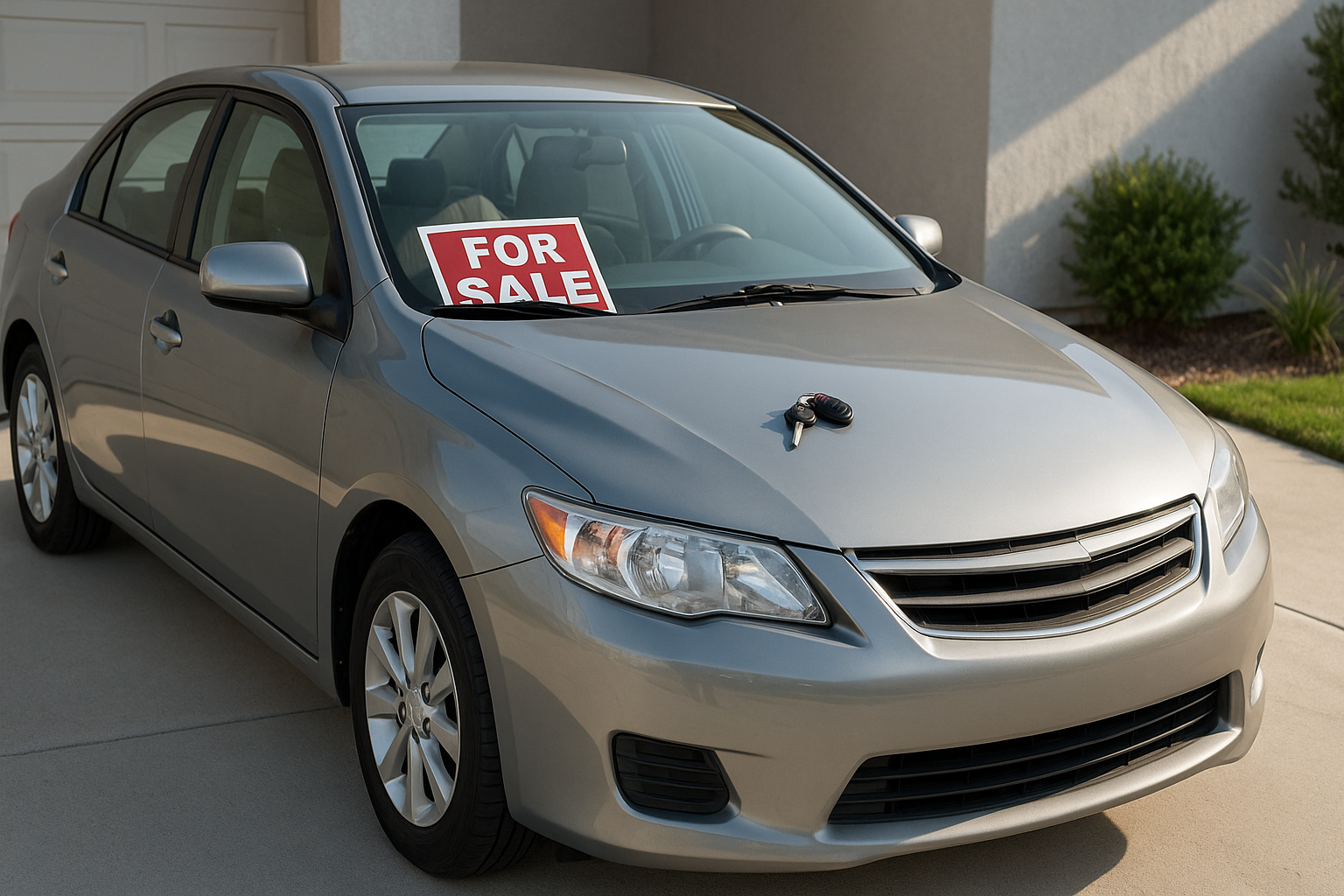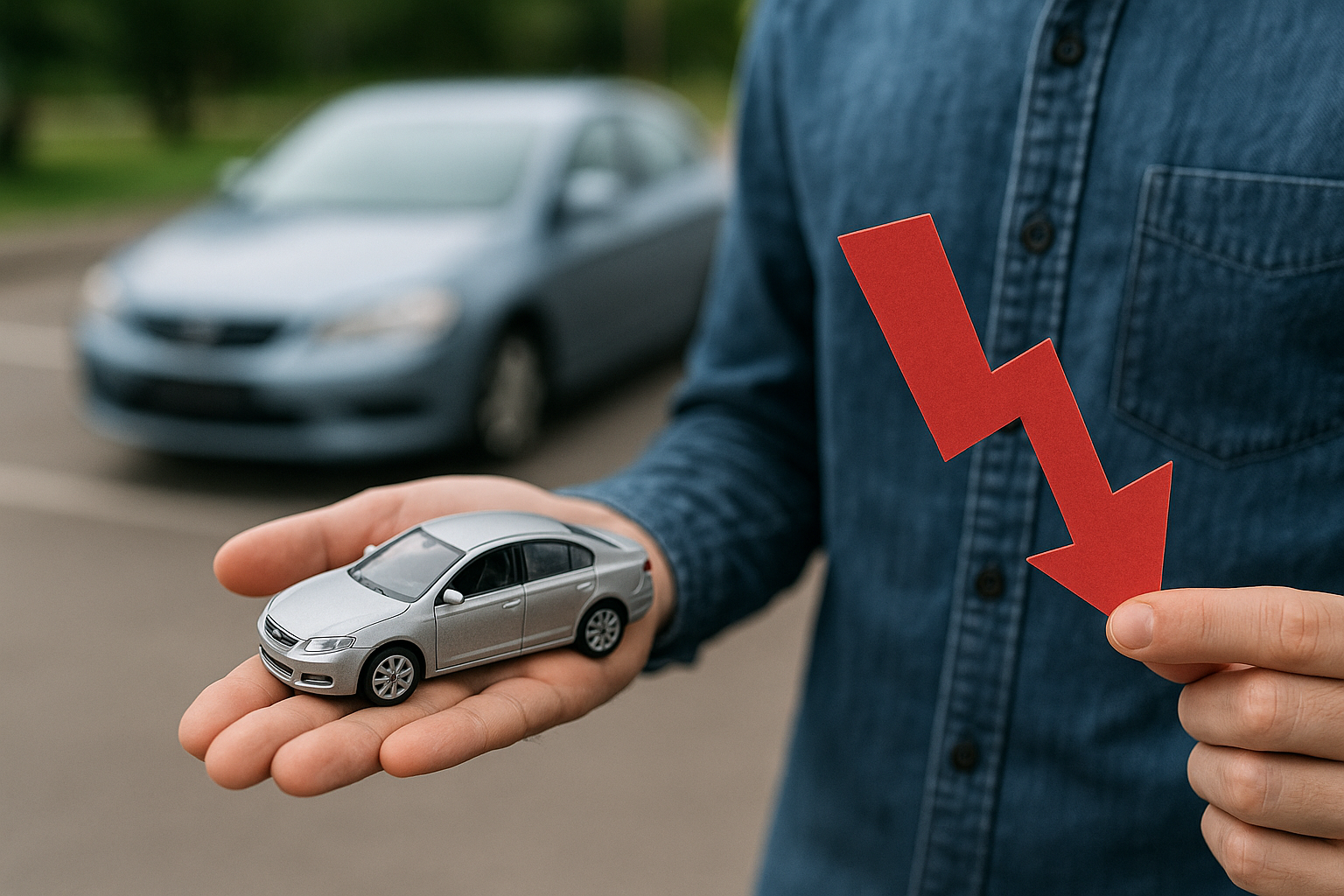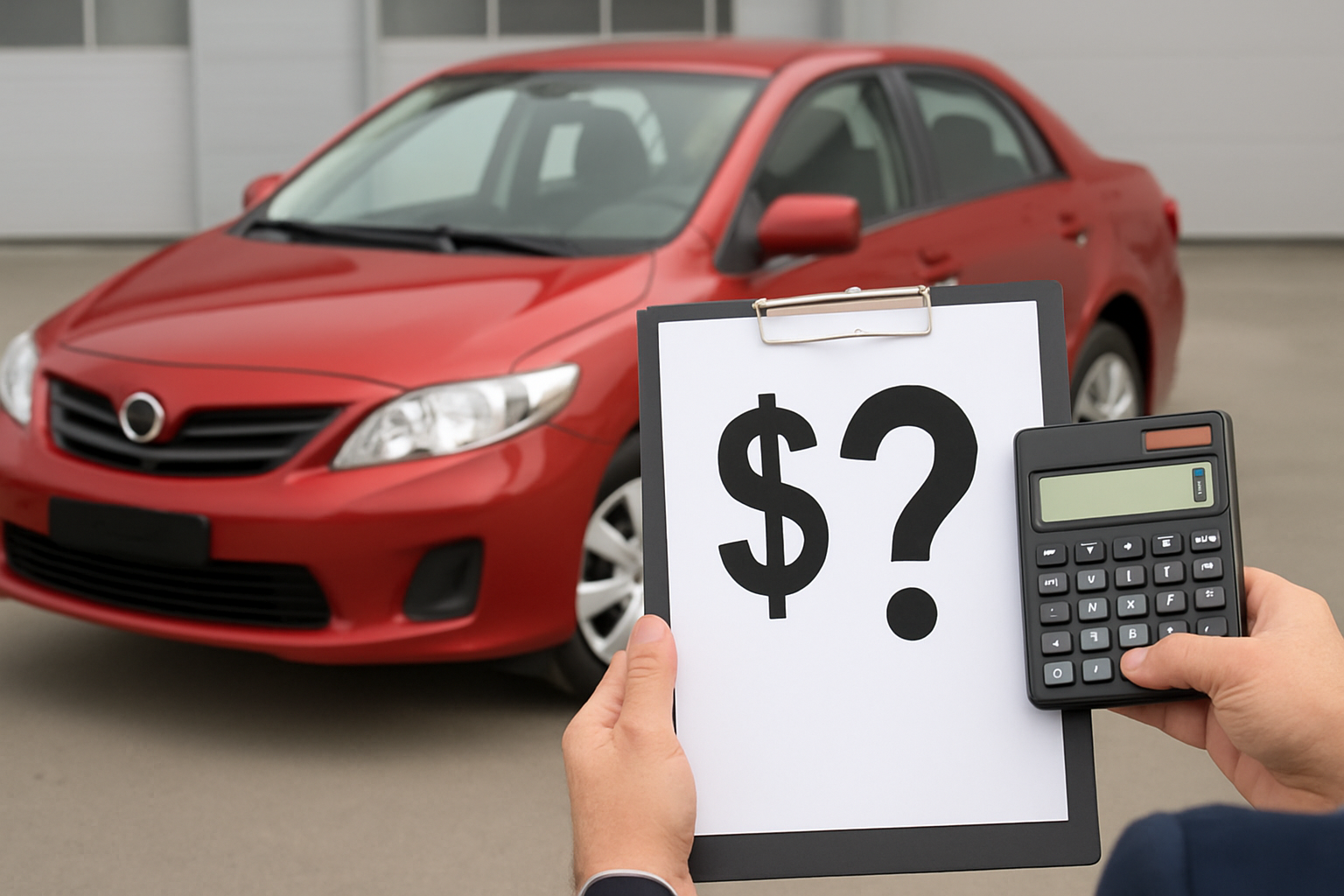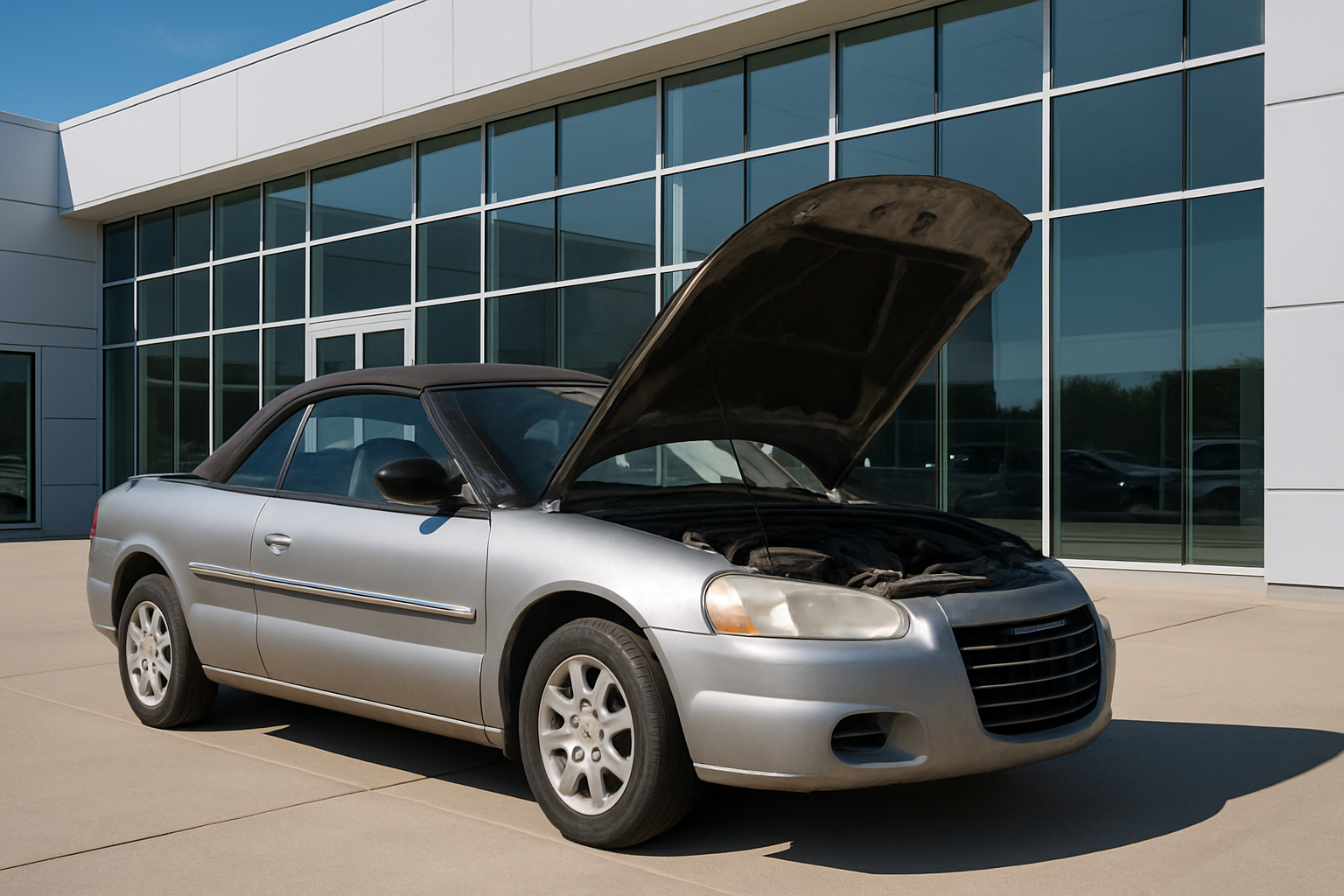Selling a used car correctly can rework a reputedly daunting assignment right into a rewarding process. By informing the marketplace and getting ready your automobile for sale, you can appeal to the proper shoppers. Presenting your automobile in its quality is important to securing a good deal. This method includes more than only a simple transaction; it's approximately making smart selections that are suitable for you and the consumer. Whether you are upgrading to a brand new model or seeking to sell, this guide will navigate you through the vital steps to gain a hit sale.
The Pros and Cons of Private Sale and Dealer Sale
Deciding between a private sale and selling your car to a dealer involves weighing various factors. Here are some key pros and cons to consider:
Private Sale:
- Pro: Typically results in a higher selling price than dealer offers.
- Pro: Gives you control over the negotiation process.
- Con: Can be time-consuming and requires more effort in marketing and meeting potential buyers.
- Con: Responsibility for paperwork and legal aspects falls entirely on you.
For more insights on maximizing your success in selling a car privately, follow the expert tips.
Dealer Sale:

- Pro: Quick and convenient, with immediate transaction completion.
- Pro: No need for you to handle paperwork or legalities.
- Con: Generally results in a lower selling price compared to private sales.
- Con: Less room to negotiate the best possible deal.
The Private Sale Process
Navigating the private sale process may seem challenging, but understanding the best way to sell a car privately simplifies it. Initially, preparing your vehicle for sale by cleaning and making necessary repairs is essential. Crafting a compelling ad that highlights your car's features and history attracts serious buyers. Communication is prime, so responding directly and professionally to inquiries could make a large distinction. When considering how to sell a car on your own, arranging safe, in-person meetings for test drives is crucial. Finally, ensuring all paperwork is complete and accurate finalizes the sale, making the process rewarding for both parties. Here are some key parts of the process:
| Step in Process | Key Actions | Tips |
| Vehicle Evaluation | Assess the car's condition, including mechanical and cosmetic aspects. | Consider a professional inspection to identify any issues. |
| Market Research | Determine your car's value based on its condition, market demand, and similar listings. | Use online valuation tools and check local classifieds. |
| Ad Creation | Develop a detailed and honest advertisement, including quality photos and a clear description. | Highlight unique features and benefits, and use engaging language. |
| Screening Buyers | Vet potential buyers to ensure serious inquiries only. | Ask screening questions before arranging meetings. |
| Test Drives | Arrange and conduct test drives with interested buyers. | Meet in public places and verify the driver's license. |
| Negotiation | Discuss the price and terms of sale with buyers. | Be prepared to negotiate but know your minimum acceptable price. |
| Finalizing the Sale | Complete all necessary paperwork and receive payment. | Use a secure payment method and provide a bill of sale. |
| Post-Sale Tasks | Notify the DMV of the sale and cancel your insurance on the vehicle. | Keep copies of all documents for your records. |
Choosing the Right Sales Price
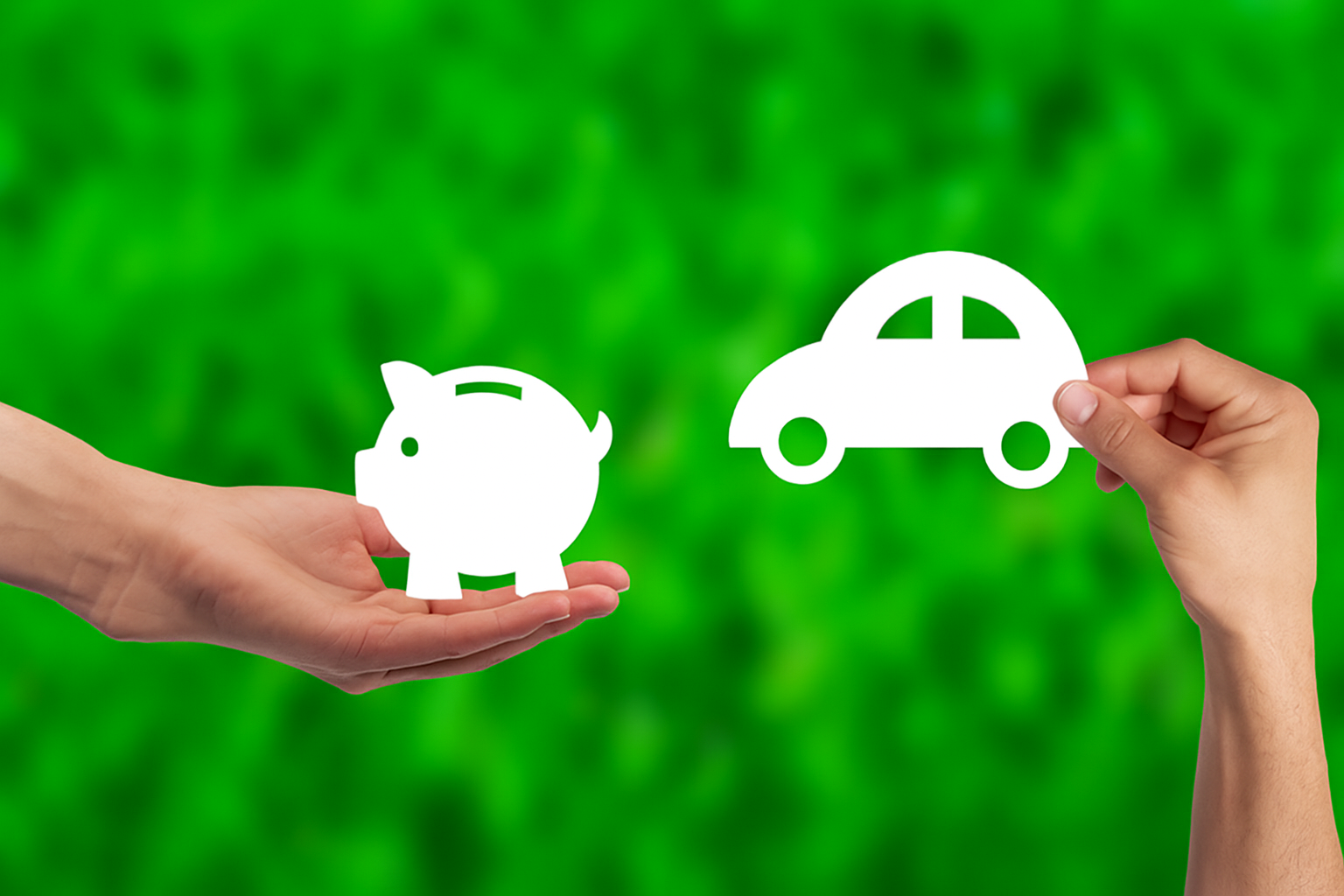
Determining how to price a car to sell is a pivotal step that requires careful consideration. Start by researching the cutting-edge market cost of similar models to make sure you are asking for a competitive price, Factors including mileage, condition, and extra functions should be taken into account to justify your offer. A properly-priced car draws extra potential buyers, balancing speed of sale with maximizing return. Remember, setting a slightly higher price may give room for negotiation. For strategies on optimizing your sale price, check out tips on how to sell a car for the most money. This approach guarantees you strike the right balance, making your offer appealing but profitable.
Collecting Paperwork for a Car Sale
Ensuring all necessary paperwork is in order is a crucial step in the car sale process. Here's what you need to collect:
| Document | Description |
| Title | The car's title proves ownership and is essential for transferring ownership to the buyer. |
| Bill of Sale | This legal document outlines the sale's details, including price and terms, providing legal protection. |
| Service Records | Presenting comprehensive service records can increase a buyer's confidence in the car's condition. |
| Owner’s Manual | The manual provides valuable information about the vehicle's features and maintenance. |
| Warranty Documents | If the car is still under warranty, these documents transfer the remaining coverage to the new owner. |
| Release of Liability Form | This form protects you from liability for any incidents after the sale and is filed with your DMV. |
Creating an Engaging Advertisement
One of the vital steps in selling a car is crafting an advertisement that sticks out. A successful advert not only showcases the automobile's features and advantages but also connects with potential consumers to an emotional degree. Highlighting specific attributes and the care you’ve positioned into upkeep can make a big difference. Photos play a key role, so include high-quality images from various angles. When you ponder how to sell your vehicle effectively, remember that transparency about the condition and history builds trust. Finally, setting a competitive price for your vehicle is vital, as it attracts serious inquiries and reflects the value accurately.
Presale Preparation

Effective pre-sale preparation is among the essential things to do when selling a car to ensure you sell your car for the highest price possible. Start with a thorough cleaning, both inside and out, to make the best first impression. Minor repairs can significantly increase the vehicle's appeal, suggesting well-maintained care over its lifetime. Compile all repair records to demonstrate to potential buyers the vehicle’s history of upkeep, enhancing its value in their eyes. An important step is accurately assessing your car value; this ensures your asking price reflects the market and the car’s condition, making your offer more enticing to buyers. Follow other steps in selling a car:
- Update all maintenance records to include recent services and inspections, showcasing ongoing care.
- Consider a professional detailing service to elevate the vehicle's appearance to its best possible state.
- Obtain a vehicle history report to offer transparency and increase buyer confidence in your car.
- Research and list any upgrades or aftermarket parts, as these can add value to your vehicle.
- Perform a safety check to ensure all lights, brakes, and signals are in working order.
- Set aside all sets of keys and any original parts you have, as these can be appealing extras for the buyer.
- Create a list of selling points unique to your car, like low mileage or fuel efficiency, to highlight in your advertisement.
- Take the time to gather information on transferable warranties or service plans that could benefit the new owner.
Finding Prospective Buyers

Mastering the best way to sell a used car involves more than just cleaning and repairs; it’s about strategic visibility and transparency. Utilizing multiple listings on reputable platforms can drastically increase your automobile's exposure to potential buyers. Ensure that every listing is particular, with clear photos and a compelling description that highlights the automobile's excellent features. Keeping a well-organized folder of repair records demonstrates to consumers that the auto has been meticulously maintained. For those looking to extend their reach, exploring alternatives to sell a used car online can provide an effective place to find a wide audience. It ensures your vehicle gets the attention it deserves from the proper consumers.
Summary
Getting your car ready to sell requires a blend of aesthetic appeal, mechanical readiness, and legal preparedness. A thorough clean and minor repairs can significantly enhance the vehicle's appeal, boosting its market value. Compiling comprehensive repair records and ensuring all maintenance is up to date are key steps in this process. Additionally, understanding how to legally sell a car, including the necessary paperwork and legal requirements, is crucial for a smooth transaction. By combining these elements, sellers can navigate the sale process confidently, ensuring both satisfaction and legality in the deal, ultimately leading to a successful and easy sale.
Tips and Q&A
-
At What Mileage Should I Sell My Car?
The ideal mileage to sell your car is often before it reaches 60,000 to 70,000 miles. This range is typically when vehicles are past their peak of reliability but haven’t yet encountered the major repair milestones that come with higher mileage. Selling before reaching this threshold ensures you can command a higher resale value, as the car is perceived to be in a better condition and less likely to need costly repairs soon.
-
What Is the Best Month for Selling Cars?
The best months for selling cars are often March, April, and May. During spring, the weather is improving, and people are more inclined to consider buying a vehicle, especially as they receive tax refunds which can go towards purchases. Additionally, selling in early spring helps you avoid the influx of new models typically released later in the year, making your car more appealing to potential buyers looking for a deal.
-
What Affects Car Sales the Most?
Several factors can significantly impact car sales, but market demand, economic conditions, and the time of year are among the most influential. Market demand fluctuates with consumer preferences, such as fuel efficiency or the latest tech features. Economic conditions, including interest rates and consumer confidence, play a crucial role; during economic downturns, car sales typically decrease. Seasonality also affects sales, with certain times of the year, like spring and summer, seeing higher demand compared to the colder months.

